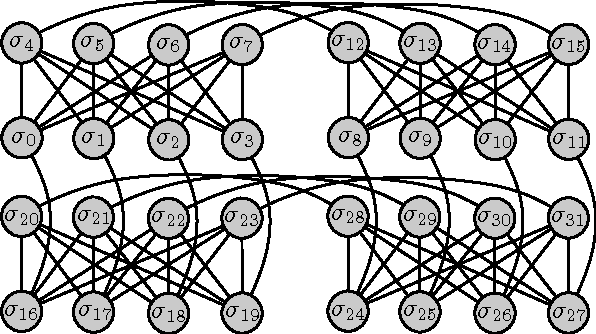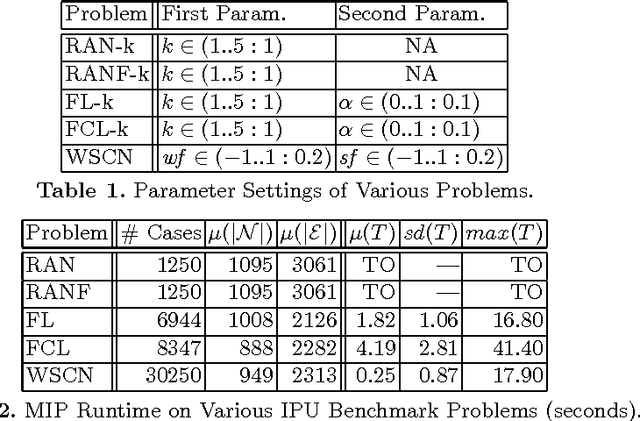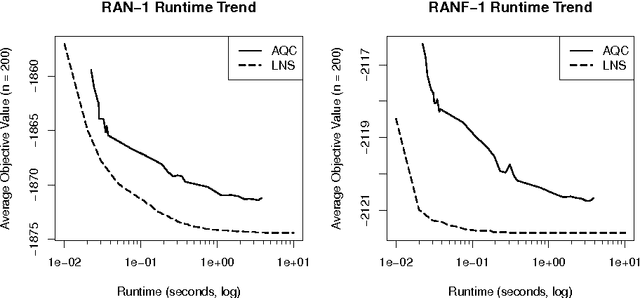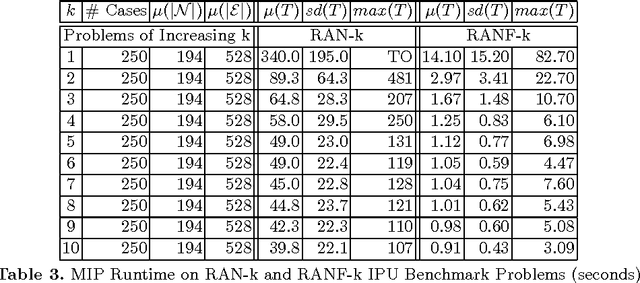Ising Processing Units: Potential and Challenges for Discrete Optimization
Paper and Code
Jul 02, 2017



The recent emergence of novel computational devices, such as adiabatic quantum computers, CMOS annealers, and optical parametric oscillators, presents new opportunities for hybrid-optimization algorithms that leverage these kinds of specialized hardware. In this work, we propose the idea of an Ising processing unit as a computational abstraction for these emerging tools. Challenges involved in using and benchmarking these devices are presented, and open-source software tools are proposed to address some of these challenges. The proposed benchmarking tools and methodology are demonstrated by conducting a baseline study of established solution methods to a D-Wave 2X adiabatic quantum computer, one example of a commercially available Ising processing unit.
 Add to Chrome
Add to Chrome Add to Firefox
Add to Firefox Add to Edge
Add to Edge